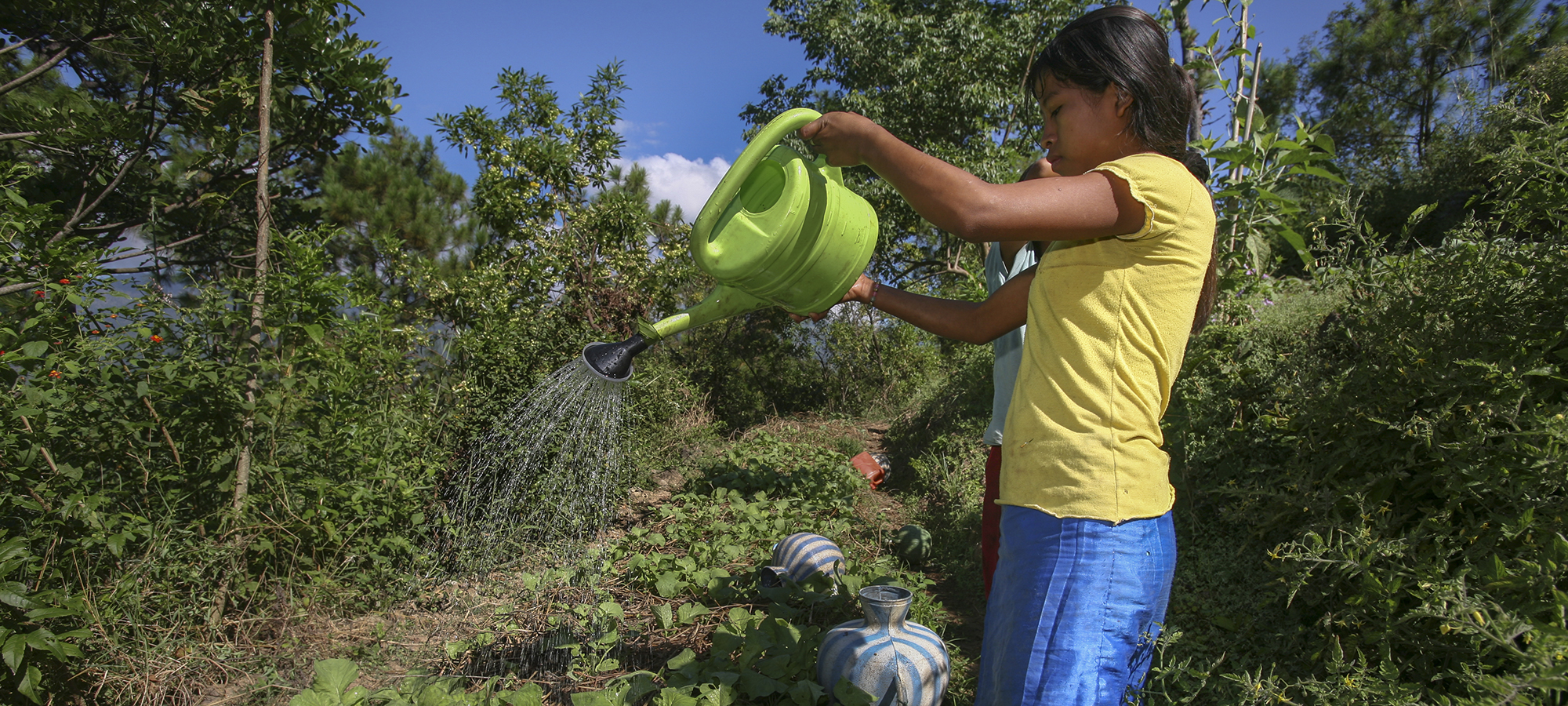
Agro-Ecological Food Production
Project Harvest practices agroecology (or an agroecological method). With years of in-the-field experience, Project Harvest has been developing an innovative strategy to diversify food production that dovetails with agroecological methods. At the same time that poor farmers are producing basic corn and beans, they are also learning how to cultivate vegetables in family gardens.
This is a strategy that simultaneously seeks to contribute to improving the availability and diversity of food, while strengthening the organizational base of families and improving their understanding of the social and economic conditions that keep them captive in poverty.
With the help of Project Harvest’s agricultural promoters, families learn how to grow a variety of vegetables to supplement the traditional diet of beans and corn. Families learn how to terrace steep slopes, make organic pesticides and fertilizer from waste at hand, and build water catchment systems with the support of Project Harvest’s partners. Participating in formation meetings is key for families to increase their knowledge so they can have sufficient nutritious food and perhaps some extra to sell.
Specifically, Project Harvest’s work focuses on the following:
Agro-ecological Technical Support
This requires dialogue between our agricultural promoters and poor families. Conversations are essential for the adoption of new knowledge and techniques. The introduction of vegetable seeds means learning new planting details. Bean seeds are not planted and tended the same way as car-rots! Techniques also include the development of organic fertilizers, organic pesticide production and their use.
Soil Conservation and Plant Diversity
Project Harvest helps create healthy soils by producing and using fertilizers such as animal manure, organic compost and worm castings. The use of pesticides and chemical fertilizers is avoid-ed. Biodiversity is promoted by planting a variety of seeds and seedlings for vegetables and indigenous plants. These also help provide food throughout an extended season as different crops mature. Seeds are saved and shared.
Water Conservation
The growing season is extended by capturing rainwater and storing it for use during the dry season. Project participants learn how to construct and maintain a Rain Water Catchment System. The system provides a family the means of irrigating their garden so that women are able to cultivate and harvest vegetables in the long dry period. A cistern holds approximately 12,000 litres of water.
Food Production and Diversifying Livelihoods
The first priority is for families to grow nutritious food for their own use. On the other hand, we are working towards a more long-range goal. As families learn how to grow vegetables, they will be in a position to intensify production and achieve volumes that will not only satisfy their family’s needs but have a surplus to sell at local markets. The income will enable the purchase of clothing, medicine and other items, but most importantly the education of their children.
Social Organization and Social Formation
Women play a key role in project planning and implementation. Formation is provided in the areas of horticulture, nutrition, organization and citizen participation. Women are central in producing food and advocating for community development. Being organized is crucial.
Formation is key so that these women understand their rights as citizens and the actions that they can take when these rights are violated. The hope is that as a result of their new skills and knowledge, they will have a voice in shaping public policies, especially the right to food.
A deeper explanation and overview of this theme is provided in this introduction to an article from The Journal of Peasant Studies.
